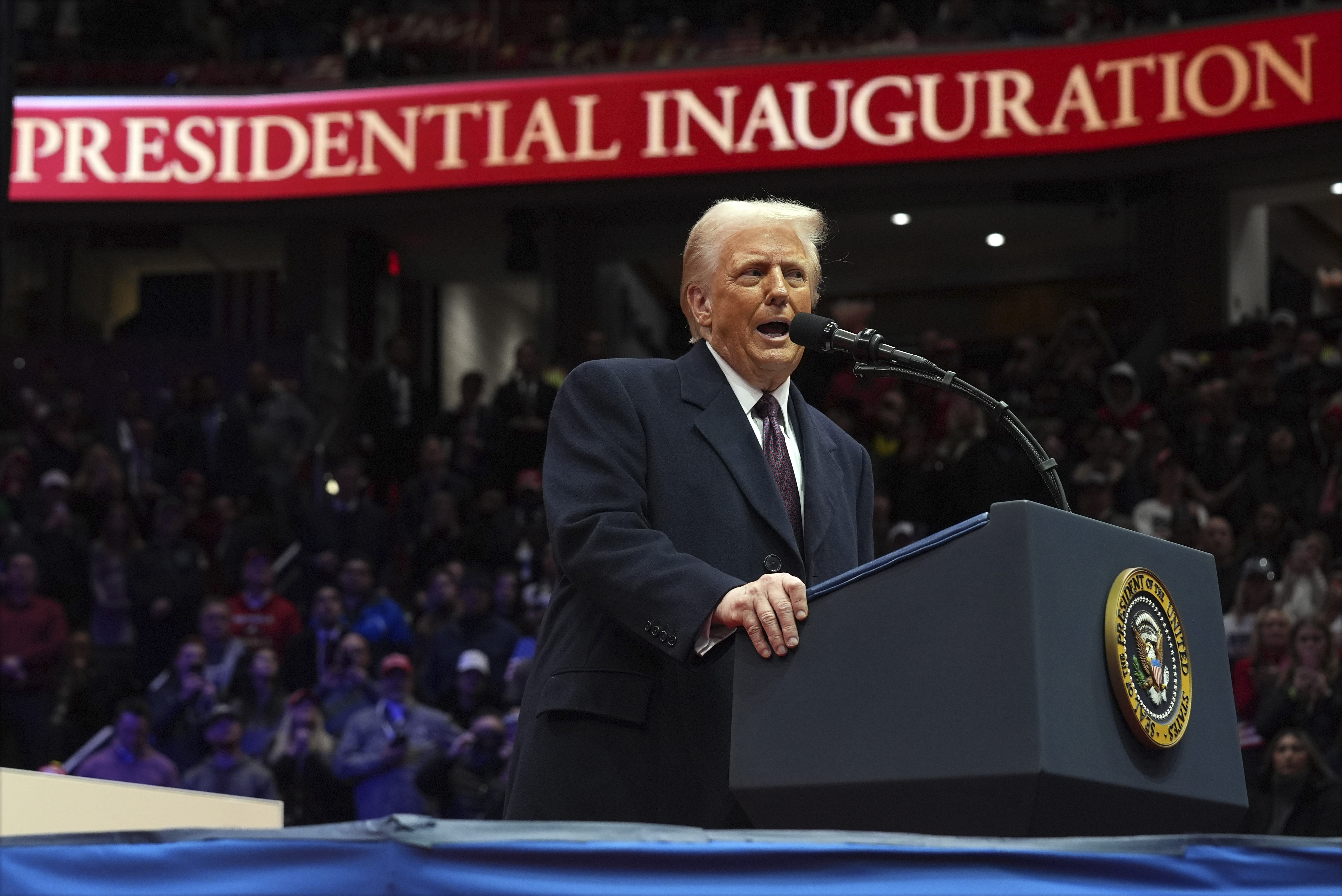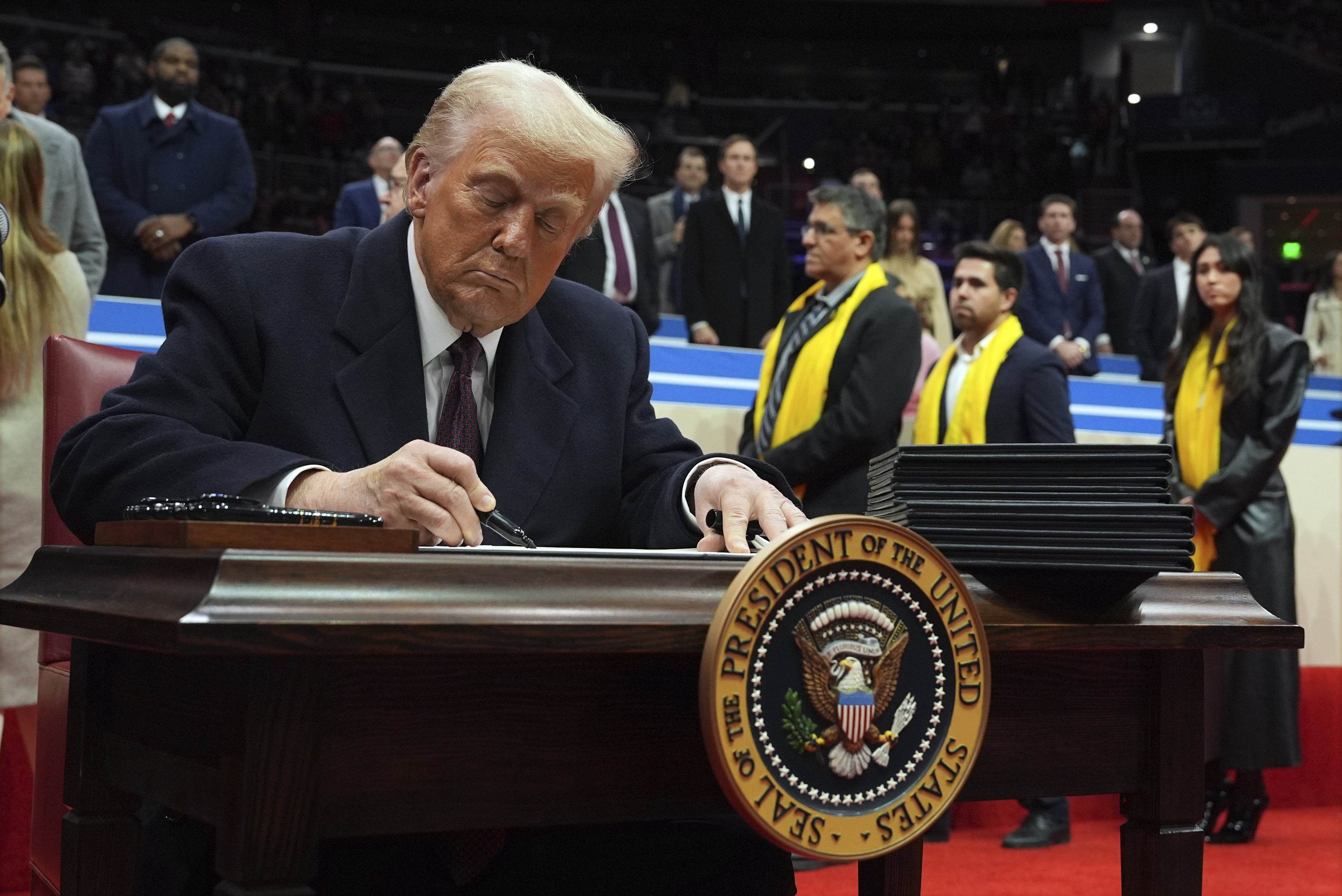More than a month after Gov. Phil Murphy announced New Jersey officials were speaking with the Philadelphia 76ers about potentially moving the team to Camden, a new letter to the Sixers highlights the possibility of up to $400 million in tax incentives should the move take place. NBC10’s Aaron Baskerville has the details and reactions from Philly residents.
What to Know
- New Jersey is trying to lure the Philadelphia 76ers across the river with up to $400 million in tax credits and plans for a sprawling mixed-use waterfront development.
- In a letter dated Monday, Democratic Gov. Phil Murphy’s administration said it envisioned a multibillion-dollar plan featuring residential, commercial and retail properties, with the Sixers as an anchor.
- A team spokesperson called the offer “thoughtful and compelling," though the Sixers are still negotiating with Philadelphia leaders on a plan to relocate to the city's Chinatown neighborhood.
More than a month after Gov. Phil Murphy announced New Jersey officials were speaking with the Philadelphia 76ers about potentially moving the team to Camden, a new letter to the Sixers highlights the possibility of up to $400 million in tax incentives should the move take place.
“We believe the Aspire program, a critical component of the ERA toolkit, could support two awards of up to $400 million of tax credits: one to support an arena and ancillary infrastructure (parking, open space etc.) and one to support significant residential, retail and office development as part of a broader mixed use neighborhood development strategy with potential to transform the surrounding areas of the City,” Tim Sullivan, the CEO of the New Jersey Economic Development Authority, wrote in a letter to Tad Brown, the CEO of Sixers owner Harris Blitzer Sports & Entertainment (HBSE). “An Aspire award supporting development of arena would be subject to a standard Net Benefit Test, ensuring that New Jersey taxpayers are more than paid back for their investment via incremental state, county and local tax revenues.”
Get Tri-state area news delivered to your inbox. Sign up for NBC New York's News Headlines newsletter.
Gov. Murphy confirmed in July that New Jersey officials were speaking with Sixers leadership about possibly relocating the team to Camden before their lease agreement expires with the Wells Fargo Center in South Philadelphia in 2031.
In the letter, which was released on Monday, Sullivan wrote they envisioned a “multi-billion dollar privately-led comprehensive mixed-used development north of the Ben Franklin Bridge.”
“Anchored by a world-class arena, we believe that this project will enable development of significant residential, commercial, and retail offerings within the City of Camden,” Sullivan wrote.
U.S. & World
The Sixers currently have a practice facility in Camden which opened in 2016. Sullivan touted New Jersey’s current relationship with the team's ownership and the state’s multiple development projects as part of his pitch.
“The results of our focus on economic growth are clear: New Jersey has added more than 200,000 new jobs since 2018, (leading the Northeast in private sector job creation since 2020) and New Jersey now ranks third among American states for venture capital investment,” Sullivan wrote.
On Tuesday, Camden Mayor Victor G. Carstarphen released a statement supporting New Jersey’s efforts to relocate the Sixers.
“Thank you to Governor Phil Murphy and his team at NJEDA for promoting Camden, NJ as the prime location for a new sports and entertainment arena. This type of large scale redevelopment would be a game-changer,” Carstarphen wrote. “This project would be a catalyst for additional development, attracting new residential and commercial investment, not to mention transforming the adjacent North Camden waterfront and neighborhood.”
Carstarphen described Sullivan’s proposed incentives as “attractive” and the offer “compelling.” He also described the proposed site in Camden.
“The parcel is owned by the state, shovel ready, and a prime location,” he wrote. “We are talking about taking vacant land which was a former prison site and turning it into a world-class sports and entertainment venue.”
NBC10 reached out to the city of Philadelphia for a response to the letter. A city spokesperson said Tuesday they had “no statement tonight.”
The talks with New Jersey come after the Sixers announced plans to build a new $1.3 billion arena in Center City titled “76 Place.” The proposal has sparked resistance and protests from leadership in the city’s Chinatown community. Members of the community have said that the proposed arena could cause street parking to disappear as well as a rise in traffic. They also said it could be harder to hold festivals.
The Sixers called New Jersey's offer “thoughtful and compelling," though the team is still talking to Philadelphia leaders about a new arena in the city.
“The reality is we are running out of time to reach an agreement that will allow the 76ers to open our new home in time for the 2031-32 NBA season," team spokesperson Molly Mita McEndy wrote in an email. “As a result, we must take all potential options seriously, including this one.”
At an unrelated event in suburban Philadelphia on Tuesday, Democratic Gov. Josh Shapiro said the team wants to remain in Philadelphia and that he hasn't been asked for tax incentives or offered any.
“I love the Sixers,” he said. “They belong in Philadelphia.”
In August, the City of Philadelphia released four reports analyzing the potential impact of the Sixers proposed arena in Center City.
According to the study, the impact on Market East is "inconclusive" and with or without the arena, the area will still face challenges in terms of development. However, the report also notes the development could help reinvigorate the neighborhood if it can resolve transportation and safety issues.
As for Chinatown, the report says 1 in 5 small businesses in the neighborhood could benefit. Those businesses are mainly in entertainment, food and hospitality.
On the other hand, half of the small businesses in Chinatown would not benefit or see a negative impact, according to the report.
The report also says there will be no direct housing displacement, but there is evidence for indirect displacement of small businesses, through gentrification.



